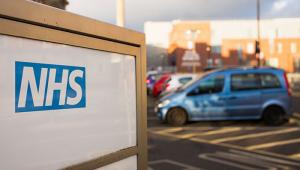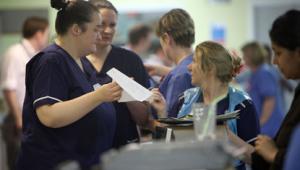The UK will have to decide whether to increase taxes or cut other public spending to fund the health service, the think-tank concluded.
Today the NIESR has released its analysis of the funding problems facing the NHS over the next five years.
It found the health service is predicted to have an aggregate funding shortfall of £20-30bn by 2020/21 and it remains behind many major industrialised nations, such as France or Germany.
In 2015 Britain spent 7.6% of its GDP on health care, the highest fraction of GDP than at any time in the past, but this lags behind France’s 8.7% and in Germany’s 9.4%.
Peter Dolton, NIESR research director, said: “It is regrettable than the major political parties seem unwillingly to acknowledge the extent of the NHS funding problem that we have and to fully explore policy alternatives in this field.
“As voters, we are encouraged to believe the NHS is safe with each of the parties in this upcoming election, but it is an urgent requirement that they all honestly embrace the financial challenges facing the NHS in the next five years.”
The report notes that the Conservatives and Liberal Democrats only pledge between £6bn and £8bn over the next five years while looking to “unrealistic efficiency gain targets” to find the rest of the shortfall in funding.
Labour want to invest £30bn in the NHS through tax hikes on the top 5% of earners but the NISER recognize these plans lack detail and highlight some experts, such as the Institute for Fiscal Studies, believe Labour may not raise the revenue they anticipate.
The report states: “If we wish to see spending on the NHS rise we will need to: increase taxes, or spend a higher fraction of public spending on health (at the expense of some other public service).
“Alternatively, if we wish to see the NHS remain the same in terms of service delivery, we either need to make substantial efficiency gains, or consent to being charged for certain services.”
Dolton concludes that it is an urgent requirement that all political parties honestly embrace the financial challenges facing the NHS in the next five years.
The Institute for Fiscal Studies also released a report today, which highlighted that regardless of who wins the election the NHS faces “challenging times ahead” due to the funding crisis.
The IFS point out that although all three parties are proposing real increases in health spending over the next parliament it is at a rate well below the long run historical average.
“In the long-run the NHS would be better served by a serious attempt to address long-run funding pressures in a coherent and systematic fashion, than by the government just announcing further short-term funding fixes.”
Today’s reports follow a series of studies from think-tanks and research centres, which outlined the depth of the funding and recruitment challenges facing the health service.
Last week a study by the London School of Economics Centre for Economic Performance found none of the party manifestos adequately addressed the staffing issues mounting for the NHS.
While research from the Nuffield Trust identified that despite differing pledges on health care spending, none of the main political party promises would meet the growing costs of health care.











